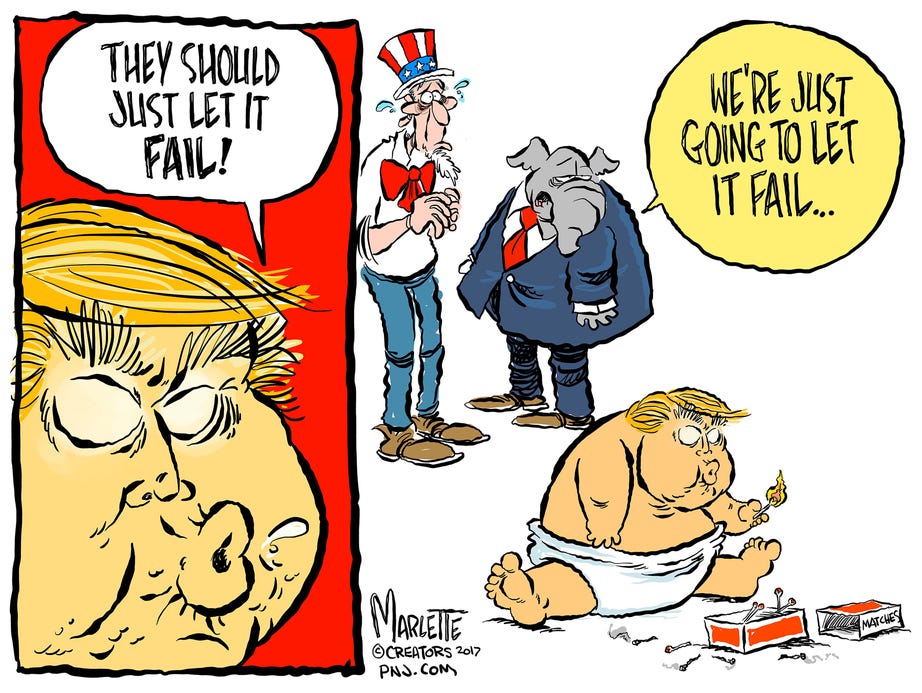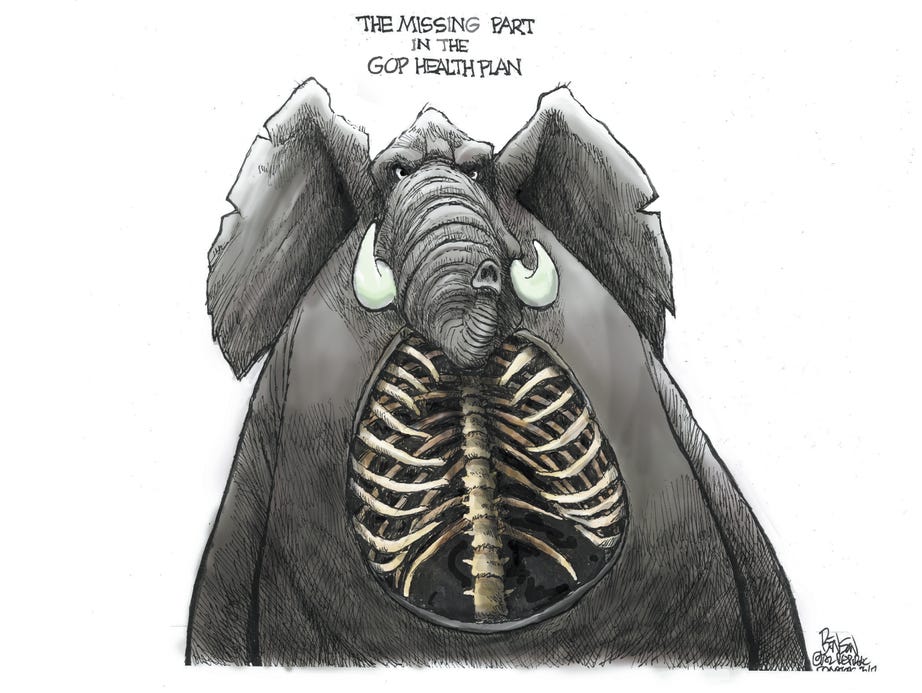Trump có thể tự ân xá cho chính ḿnh được không?
Mấy hôm vừa qua, Trump đă đặt câu hỏi với luật sư riêng để t́m hiểu về giới hạn của quyền lực ân xá của tổng thống. Điều này đă khiến cho người ta tin rằng Trump muốn biết ḿnh có thể tự ân xá cho chính ḿnh, con cái, và nhân viên thuộc quyền hay không.
Hiến pháp Mỹ trao cho tổng thống quyền ân xá nhưng v́ chưa ai nghĩ đến chuyện nước Mỹ có một tổng thống lưu manh, nên trong hiến pháp Mỹ có một lỗ hổng to, cho phép tổng thống tự ân xá cho chính ḿnh, gia đ́nh, hay bất cứ ai.
Chuyện ǵ sẽ xảy ra nếu Trump thực thi quyền ân xá cho chính ḿnh? Chưa ai có câu trả lời xác đáng, nhưng người ta tin rằng nếu đa số người của GOP nắm bên Thượng viện và Hạ viện th́ có lẽ mọi chuyện cũng sẽ đi vào quên lăng.
Yes, Trump Could Pardon Himself. Then All Hell Would Break Loose
http://www.politico.com/magazine/sto...k-loose-215405
This week’s eye-popping constitutional question: Can President Trump pardon himself for criminal wrongdoing? With the Russia scandal swirling more intensely around the White House every week, the Washington Post reported Friday morning that the president might be considering pardoning himself and members of his family as a way of fending off legal consequences for whatever special counsel Robert Mueller’s investigation turns up.
A self-pardon would be something new in American history — and just the kind of departure from prior norms that typifies Trump. The Constitution doesn’t specify whether the president can pardon himself, and no court has ever ruled on the issue, because no president has ever been brazen enough to try it. Among constitutional lawyers, the dominant (though not unanimous) answer is “no,” in part because letting any person exempt himself from criminal liability would be a fundamental affront to America’s basic rule-of-law values.
...
So even if Trump announces a self-pardon, the question of whether that announcement “really” created a valid pardon is one that might never be answered. But if it is settled, it’s more likely to be answered by elected officials rather than in court. Either they’ll punish him or they won’t, and if they don’t, the pardon might never matter one way or the other.
So for Congress to play its role in the constitutional system responsibly, its members might need to confront the basic legal question: Whether the constitution is best interpreted as giving the president a power to pardon himself. There are good reasons to arrive at the conclusion that self-pardon is not acceptable. And the very fact that the issue can’t reach a court anytime soon is a further reason why Congress needs to take its constitutional responsibility seriously. If the president announces a self-pardon, the Republican congressional leadership will either let a chief executive with no evident respect for the rule of law trash yet another constitutional norm, or it will finally decide to confront a reckless president who still commands the loyalty of their own party’s voting base. It’s bang or whimper, and it isn’t pretty either way.




 Reply With Quote
Reply With Quote




Bookmarks